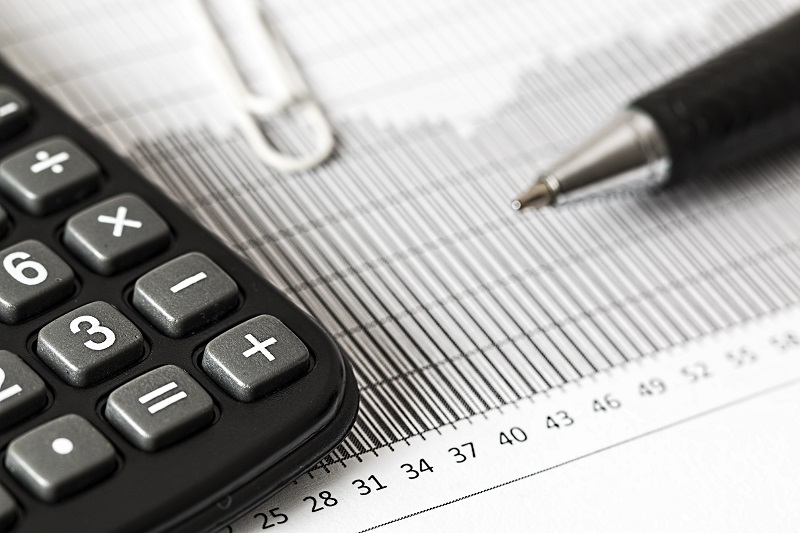Tips and Tricks from Ray Gernhart and Associates Agent Vik Narula
If you’ve ever watched HGTV, you’ve probably come across multiple shows about flipping houses. From Flip or Flop to Masters of Flip to Flipping Virgins, the list goes on and on. If the popularity of these shows is any indication, it seems America is enthralled by this idea of flipping real estate.
How financially feasible is this practice, though, and if you’re seriously interested, what do you need to do to get started? Vik Narula can help answer some of these preliminary questions!
Vik is an agent at Ray Gernhart and Associates, and he has ten years of industry experience as a Realtor in the Washington, DC area. In addition to working with savvy investors, Vik is also an investor himself. He has been flipping homes for approximately seven years and has completed roughly thirty projects. During this time, he’s amassed a great deal of knowledge about this process and is happy to share what he knows with anyone potentially looking to get into flipping real estate.
What Is Flipping a House?
Flipping a house is simply when a real estate investor purchases a home with the express purpose of making a profit on it. For the deal to be considered a “flip,” the investor must sell the home after a short time owning it. In this way, the profit is not made on the gradual appreciation of the home but on strategic repairs and updates that increase the value of the property.
In a flip, the investor typically gets a property at a discounted price and then quickly ups the potential selling price through improvements.
5 Keys to Being Successful at House Flipping
Investing in real estate with the express purpose of making a profit intimidates a lot of people because there’s no getting around the fact it involves a lot of capital. Even if you get the most favorable loan terms, you’re still putting yourself on the line for a sizable investment.
When flipping a home, you incur all the fees typically associated with a real estate purchase, plus more:
- Down payment
- Closing costs
- Home inspection
- All desired repair work (most often using contractors)
- Carrying costs while owning the home, including property taxes, utilities, and homeowners insurance
- Realtor fees when selling
- Applicable taxes when selling
Given all that, how can you help ensure you make enough of a profit to make these ventures worth it? Here are five essential tips:
- Get a great deal on the property.
To make a decent profit, you need to secure the right property. To find properties with lower asking prices, check out options like wholesalers, auctions, foreclosures, and for-sale-by-owner properties. - Don’t bite off more than you can chew.
Getting a great deal is one thing, but beware of homes that are too cheap. This might indicate the property is a complete gut job or even a teardown. Especially if you’re just getting started, you don’t want to overwhelm yourself (or your resources) with an overly involved flip. In flipping, less is often more. - Find the right contractors.
Unless you have a background and experience in home repair work, it’s almost always a better idea to use professionals for your renovation work. Sure, you might put in some sweat equity when it comes to ripping up carpet or doing other small tasks, but on the whole, leave skilled work to those who are properly trained and experienced.Finding the right contractors is often the key to making a home flip work. You need people who are reliable, experienced, committed to your deadlines, and reasonably priced.“If I could offer any advice to people looking to flip homes, it would be to thoroughly vet your contractors. Make sure they have a proven track record of success and reliability,” says Vik. “Also, plan ahead before you start any major renovations. It’s understandable to be excited and anxious to get started as quickly as possible, but simply by doing home repairs in a logical order, you can avoid a lot of needless fees and expense.”
In relation to contractors, Vik also cautions against anybody who seems too good to be true.
“When I started out, I wish I’d had more guidance on the important process of vetting contractors,” says Vik. “You shouldn’t always go for the cheapest person out there. I’ve been down that road, and it caused me to lose a lot of time—and money—on the project.”Lastly, don’t be afraid to be hands on. Visit the jobsite often to ensure everything is on schedule and on track. A small delay might not seem like a big deal, but it can have big consequences on your bottom line. Say, for example, your contractor takes just one extra month to complete a roof job. That’s an extra month you’re paying for labor, but it’s also an extra month of carrying costs on the home. That’s mortgage, property taxes, homeowners insurance, utilities, and HOA fees (if applicable). It all starts to add up quickly—and to eat into your profits!
- Secure favorable financing.
Many ways exist to finance home purchases for flipping, but be aware it isn’t as straightforward to get a loan for a flip as it is for a primary residence or rental property. Interest rates and fees are typically higher because the bank perceives flipping as a riskier proposition than a standard mortgage.If you’re a first-time home flipper, don’t be surprised if banks turn you away. They often want to see you have a track record of selling at least one home for a profit before they will invest in your subsequent endeavors.Some options include hard money loans, conventional loans, private lenders, or even crowdfunding. The right financing option depends entirely on your situation. Each one comes with pros and cons. The important thing here is to know the exact terms of your financing options and to do the math to determine what makes the most financial sense. From there, you can start to attempt to qualify for the most favorable option; if you’re denied, move down your list!
- Don’t overstretch on asking price.
One of the biggest mistakes people make, especially when they’re starting out in this industry, is overpricing their homes when they put them on the market. The way to be really successful at these ventures is to turn properties quickly as opposed to getting every last penny of profit out of every job. If your property sits on the market for months because it’s overpriced, that quickly eats into your profits, and you’re potentially even worse off than if you’d priced it to sell.
Tax Considerations When Flipping a Home
Flipping houses is a job, both in that it takes a lot of work and that the profit you make is subject to taxes. If you’re flipping a home in the short term (less than a year) and you’re considered a “dealer,” profits are generally considered “active income” by the IRS. Those profits are taxed at the ordinary tax rate, which is between 10 percent and 37 percent. Except in certain uncommon circumstances, this is considered self-employment tax, so you’re also going to have to file quarterly, keep meticulous records, and do everything else self-employed workers have to do with their finances.
That is the case for most people who are buying properties with the express purpose of fixing them up and reselling them. Holding onto the property for longer (more than a year), either by occupying the house or renting it out, can change the tax status of that transaction. If certain criteria are met, you could be subject instead to short-term capital gain or long-term capital gain, which offer more favorable tax terms.
The takeaway here is that the tax implications with flipping are extremely complicated, and because taxes represent such a significant portion of your flipping-related expenses, it’s always advised you speak to a qualified CPA and a financial adviser to talk through the best option for you. The tax laws are not only complicated but they vary based on the specific circumstances of the house sale (whether you have renters, how long you’ve owned the property, the final selling price, and much more). Making a mistake here could lead to serious tax penalties, which could quickly nullify any profits you made. This isn’t a place to scrimp or to avoid professionals. Find people in finance you trust to help you navigate these complicated waters.
Another essential piece of tax-related advice is to keep detailed records and receipts of everything. If you’re working with contractors, this is somewhat easier because you’re usually just paying one or two large invoices. If you’re doing any of the work yourself, though, all those multiple runs to Home Depot, Lowes, and Ace Hardware can quickly get unruly if you don’t categorize and organize your receipts from day one. Update your records as the project progresses rather than doing it all at the end. Come tax time, you’ll be glad you did! Remember, you can’t deduct something if you don’t have proof of the purchase. Because of this, sloppy record-keeping could really end up hurting your bottom line.
I’m Still Really Interested in Flipping Houses. What Should I Know?
If you’re still thinking this sounds like something you’re interested in, there are lots of important things to keep in mind.
First of all, if you’re discouraged because you don’t think you live in a favorable market for this, think again! Real estate in the Washington, DC; Virginia; and Maryland area is undoubtedly hot, but that doesn’t make it the only feasible market.
“All markets can be good to flip,” says Vik. “Just make sure your margins make sense, and always conduct a pro forma. This will give you a sense of whether the project is financially feasible before you start.”
Second, make sure your renovations are done thoughtfully. Don’t just dump money into projects that aren’t likely to yield a positive return on investment. Given that, where should you put your hard-earned money for the best chance at seeing it yield results?
“If you can alter the layout of the home, make it an open floor plan. Ideally, it should be clean and bright with lots of lights,” says Vik. “Also, do colors that most people enjoy. Whether it’s paint or countertops, you don’t want to pick a color that could put buyers off.”
Lastly, if you don’t have any experience in this, it doesn’t mean you can’t start. Even the most seasoned house flipper, at some point, had never done one before! If you really want to dive into this venture but don’t have any practical experience under your belt, Vik has this to say:
“If you’re just starting out, take as much guidance as you can get from people you know. Hire a contractor who is experienced and can help with the process. Especially if you’re new to this, you don’t have to do it alone or guess your way through it. Undertake a project with somebody who has the experience and expertise to help you out.”
If you live in the DMV area and you’re thinking about the opportunities afforded by property investment, feel free to reach out to Vik today. He can bring his ten years of realty experience in the DC area, his own expertise as an investor and flipper, and his MBA to support your investing efforts in the DC real estate market.














